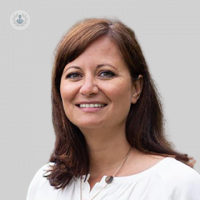All about PTSD
Written in association with:PTSD is a condition which can have long-standing and devasting effects on a person, arising due to traumatic incidences in their life. Esteemed chartered counselling psychologist Dr Jessica Valentine delves into the condition, including the core symptoms, diagnosis and treatment options.

What are the core symptoms of PTSD?
PTSD can include the following symptoms:
- Flashbacks
- Nightmares
- Pain in the body
- Anxiety
- Paranoia
- Trust issues
- Hypervigilance
- Sleep difficulties
- Crying all the time
What factors contribute to the development of PTSD?
Several elements contribute to the emergence of PTSD. One crucial aspect involves neglecting to address or appropriately manage trauma. Failing to treat or process traumatic experiences in a constructive manner can significantly contribute to the development of post-traumatic stress disorder.
How is PTSD diagnosed?
Diagnosing PTSD involves a comprehensive approach that includes screening methods and referencing the Diagnostic and Statistical Manual of Mental Disorders, Fifth Edition (DSM-V). A thorough evaluation is conducted, utilising specific criteria outlined in the DSM-V, ensuring a systematic and accurate identification of post-traumatic stress disorder.
The combination of screening tools and adherence to established diagnostic guidelines is pivotal in the precise diagnosis of PTSD.
What are the treatment options for PTSD?
There are several treatment options for ADHD. Including the following:
- Somatic release
- Counselling
- Eye Movement Desensitisation and Reprocessing (EMDR)
- Emotional Freedom Techniques (EFT)
It is also possible to treat ADHD through calming the nervous system, acquiring new coping strategies, embracing acceptance, and prioritising self-care.
What are the long-term effects of PTSD?
The lasting effects of PTSD provoke various challenges, including strained interpersonal connections, breakdowns in relationships, persistent physical pain, disrupted sleep patterns, and recurring flashbacks. Individuals grappling with post-traumatic stress disorder often grapple with the enduring impact on their ability to form and maintain healthy relationships.
Chronic physical pain and disturbances in sleep further contribute to the long-term struggles associated with PTSD, highlighting the complex and pervasive nature of its effects on both mental and physical well-being.
What are some resources available for individuals with PTSD and their loved ones?
There are several support options available for individuals and their families coping with PTSD, ranging from counselling services and support groups to educational materials and online platforms. However, treatment options vary depending on the trauma which needs to be treated (bereavement, abuse survivors, specialised support groups etc).
These outlets provide valuable information, coping strategies, and a sense of community for individuals and their loved ones navigating the challenges posed by PTSD. Accessing these diverse resources can contribute to a holistic approach in managing the impact of PTSD on individuals and fostering a supportive environment for their close relationships.
If you would like to book a consultation with Dr Valentine, do not hesitate to do so by visiting his Top Doctors profile today.


